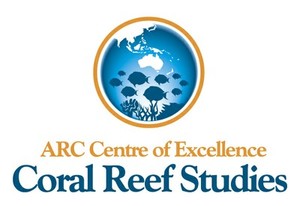Marine reserves ‘must adapt to climate change’ scientists say
by ARC Centre of Excellence for Coral Reef Studies on 28 Nov 2012

SW
Australia can be a world leader in designing marine reserves that keep pace with variations in the climate and human activity and still successfully protect their sea life, a leading marine scientist said today.
Professor Bob Pressey of the ARC Centre of Excellence for Coral Reef Studies and James Cook University told the Australian Academy of Science’s Earth System Outlook Conference in Canberra that developing marine protected areas that can absorb the impact of warming oceans, storms and flood events from the land is ‘doable’.
His comments come as government leaders from around the world meet in Doha for the United Nation’s Climate Conference (Nov 26-Dec7) to try to impart new momentum to stalled efforts to fight climate change.
'The challenge we face is that a marine reserve or park usually covers a fixed geographical area – but bodies of hot ocean water, storms and flood runoff move unpredictably in space and time,' Prof. Pressey explains.
'This means either that the reserve boundaries may have to move as things change – or else they need to located and designed carefully. If they’re fixed reserves, they need to be placed away from frequent disturbances, or configured so that individual disturbance events don’t affect them entirely. That way, we can include areas where sea life may take refuge to be safe from the impact.'
Prof. Pressey says that 25 years of ocean temperature data had given scientists a much better understanding of where on the Great Barrier Reef the impacts of coral bleaching were likely to be most severe – and where corals appeared to be consistently safe from high temperatures.
'While we can’t easily predict when an episode of hot ocean water will move in, we can definitely see some areas which appear to avoid the harshest effects over time – whether because they are shielded in some way or cooled by cold upwelling currents.
'This gives us the ability to design marine protected areas for the GBR and elsewhere that are resilient over time, no matter what changes take place.
'On top of the sea temperatures, we can also potentially factor in historical data from cyclone tracks and flood plumes, or bodies of floodwater with high loads of sediment. By superimposing all these we can identify and be sure to protect those special areas of the reef which are naturally resilient and which can recharge other areas that may be damaged.'
In a separate paper to the conference Professor Geoff Jones of CoECRS and JCU said there was now plenty of evidence that marine reserves work – not only by replenishing fish populations in no-take zones, but also by recharging fish populations in areas open to fishing.
'Our a new application of genetic parentage analysis shows protected populations of coral trout are helping to sustain juvenile recruitment in both reserves and in fished populations,' he says.
'At the Keppel islands, local reserves (about 30% of the reef area) now account for about 60% of juvenile recruitment of coral trout in the region, both in reserves and fished areas. Hence, reserves do have the potential to conserve coral trout and sustain fisheries in the long-term.'
However Prof. Jones cautioned that coral trout populations could still suffer if coral cover on the reef declined – and added that size and catch limits would still be needed in areas outside the reserve to ensure there were enough adult fish to sustain the fishery.
'While no take zones are extremely valuable, we need both them and more traditional fisheries management practices to ensure a healthy fish population on the Great Barrier Reef into the future,' he concluded.
http://www.coralcoe.org.au/
If you want to link to this article then please use this URL: www.sail-world.com/104169